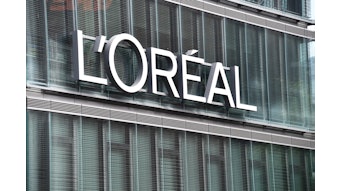Many marketers are concerned about the death of the traditional brand. As the millennial generation (those classified as adults ages 18-34) start to exercise their purchasing power, there is a strong sense of foreboding. The media is full of reports of how millennials don’t pay attention to or believe traditional advertising. Store brands proliferate and consumers who switched from name brands to save money when their household budgets were tight don’t seem inclined to go back. What’s a brand marketer to think and, more importantly, what are they to do?
Millennials do love brands. They just love some different brands than their parents did. While advertising might have helped to compel the 40+ year-old consumer to hunt for name brands, her 20-something counterpart may have come to rely on the Costco Kirkland brand or the Trader Joe brand to provide the same type of trust and reassurance. She knows what to expect from Kirkland or Trader Joe’s or Sephora, much as consumers have always known what to expect from brands.
Name brands provide reassurance and trust, and they save time. Millennials, like the rest of us, are time-crunched and don’t want to research or agonize over every purchase decision. Buying a brand she knows enables her to make quick purchase decisions, even for categories in which she hasn’t purchased in before.
In fact, this timesaving, reassurance building dynamic is particularly important for millennials as they enter into household and family formation life stages. Brands that can generate affinity and trust for millennials are filling an important need, and are valued accordingly.
Millennials appreciate brands that they feel speak to them personally and who they are—not to their parents. But they also value brands with which they formed relationships when they were kids, and those that they perceive as classics. Building brand affinity among millennials can be categorized two ways: be today’s “next big thing” or be the brand that’s always been there for them. Millennials love Michael Kors and Chanel as much as Lululemon and Ralph Lauren, Annie’s Snacks and Cheetos.
Whether you’re an emerging new brand or a heritage brand, a sense of freshness in your approach to millennials must be maintained. Cheerios, a brand nearly all millennials remember from their childhood, has been consistent in its brand positioning for decades—Cheerios provides a family bonding experience over breakfast. But in 2013, Cheerios made headlines (and built affinity among a new generation) with its TV spots that featured an interracial family. More recently, the brand made waves again through its depiction of a (surprise!) highly capable stay-at-home-dad serving Cheerios to his kids.
Dove, a soap brand that’s been around since 1953, has captured the hearts of a new generation through its celebration of ordinary women in its Real Beauty campaign and, more recently, ordinary men in advertising for its Men+Care line.
Newer brands have less of a burden of relevance than do established brands, but they do have a greater challenge breaking through and getting noticed amidst the daily onslaught of brand messages.
Because new brands are starting with a blank slate, it’s even more important for them to maintain clarity of positioning—providing a clear answer to what millennials want to know: “Who are you anyway, and why should I like you, trust you and want to bring you into my life?”
Conventional wisdom says that to maintain relevance in the minds of consumers, brands shouldn’t step too far outside of their known product categories. When it comes to traditional brands, that’s still true. You wouldn’t expect Estée Lauder to extend their brand to paper towels— the brand doesn’t possess that level of elasticity—but as millennials come to rely on brands to provide a more general sense of reassurance about value and quality, it’s perfectly acceptable for Trader Joe’s to apply its unique private label brand of hip and healthful value to wine, beer, coffee and to soap. And for the Kirkland private label brand to provide value and reassurance across products ranging from appliances to fresh bread. Brands that can generate affinity and trust for millennials and whose brand can transcend a specific product category on the basis of their core values are sitting on a gold mine.
A core tenant of the millennial generation is social interaction, not only with family and friends but online with complete strangers with whom they share only a particular topic of interest. Likewise, millennials are eager to talk with brands, to not only provide feedback but to be recognized as associated with a particular brand. This willingness to converse provides a new opportunity for brand marketers, but it’s one that can easily be misused and abused.
Millennials, like all consumers, want to know what to expect, and they want to be heard. They want brands that understand them, but they also want brands that they understand. So a brand that tries to be too in the moment, commenting on all manners of current events and topics runs, the risk of losing its unique identity or persona. For the majority of brands, simply being clever, trendy and in-the-moment isn’t a unique or enduring brand proposition.
Millennials also love to be entertained. Brand marketers, be warned, don’t let them suck you in. Your job is to entice them to buy your brand. YouTube views, sharing and re-tweeting can help build your brand, but only if the communication is A) remembered as being about, or at least presented by, your brand and B) generates a sense of affinity for your brand.
The good news is that millennials are just as brand-conscious and as brand-loyal as their parents were, and they are just as open to brand messages that will entice them to buy and advocate for your brand.
Jeri Smith is president/CEO of Communicus, a research-based advertising consultancy that specializes in isolating the impact of advertising and integrated communications campaigns on brands. Smith has focused her career on helping clients more intimately understand how their advertising is working, having spent more than 20 years at Communicus and another 15 at DDB, leading consumer research, planning and marketing information services units.










